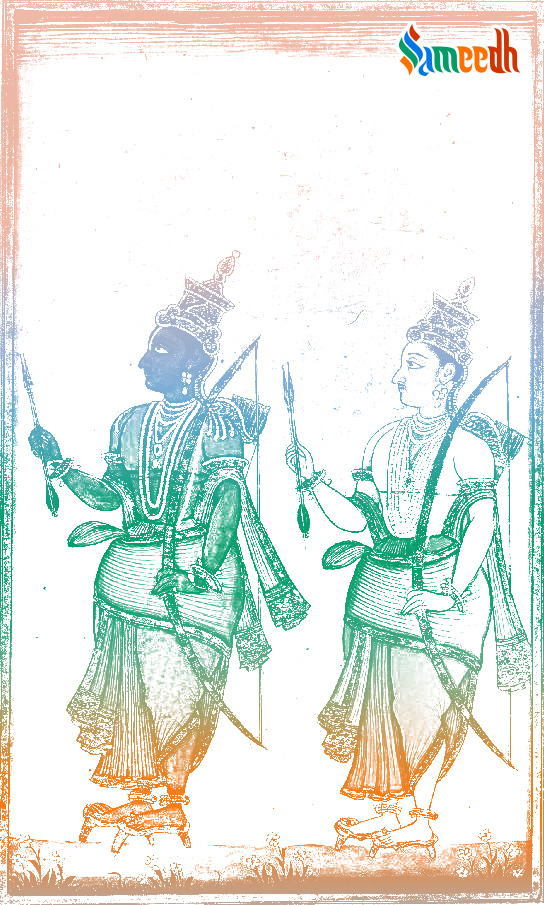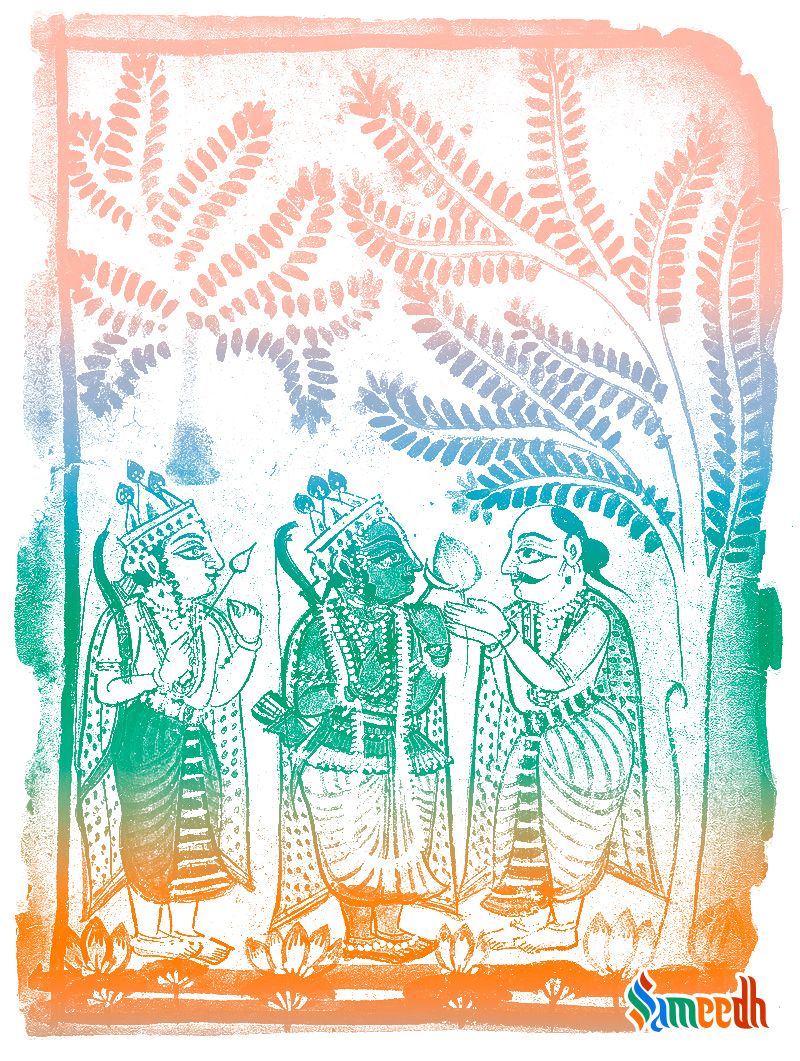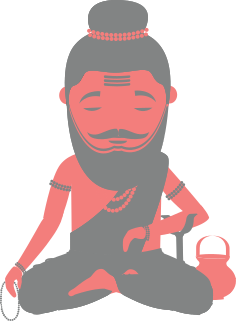The story of a man who dedicated his entire life serving his elder brother, Ram, wholeheartedly in the Indian epic of Ramayan.
Laxman was one of the prominent warriors of the Indian epic Ramayan. He is the personification of selflessness, duty, service and sacrifice. He is known for his unconditional devotion towards his elder brother Ram, the man around which the legendary epic revolved.

Ram and Laxman; Image Source: British Museum
Laxman’s father Dashrath had three wives; Kaushalya, mother of Ram, Kaikeyi, mother of Bharat and Sumitra, mother of Laxman and Shatrughan. Despite having different mothers, Ram and Laxman were the closest of the brothers. The eldest son, Ram was to rule the kingdom of Ayodhya. But Kaikeyi wanted her own son Bharat to be the king and invoked a favour from king Dashrath which he owed to her on the battlefield. She asked for Bharat to be the ruler of the kingdom, in spite of Bharat’s own wishes of not defying his elder brother Ram’s rightful claim to the throne.
Dashrath had no choice but to obey his word. Kaikeyi’s shrewdness had predicted that if Ram stays in the kingdom while her own son rules, the common people wouldn’t take it well as their love for prince Ram was well known, hence she insisted on an exile of 14 years for Ram.
Ram’s wife Sita, being the dutiful wife, too joined Ram on his exile leaving behind the comforts of their royal palace. Laxman too decided to follow his elder brother and sister-in-law to protect them in the hour of need. Ram was aware of his brother’s love for him and knew it would be futile convincing him otherwise. Laxman’s own wife, Urmila, younger sister of Sita, too wanted to come along but he refused and asked her to take care of their mothers. Royals then were permitted to marry more than once but following in Ram’s footsteps of not marrying again after Sita, Laxman too stayed fully faithful to Urmila alone. Laxman’s love extended equally to his stepmother Kaushalya too. It was Sumitra who asked Laxman to safeguard Ram and Sita and never sleep to keep danger at bay. Laxman obediently follows that and never had a shut eye for 14 years straight. The title of Gudakesh, one who is not bound by sleep, was bestowed upon him due to this. Arjun, from the epic Mahabharat, too had achieved this title.
Once in the dense forests, Laxman built a hut for Ram and Sita and stayed up all night to guard them. During this time, although the food was given to him by Ram, his elder brother never explicitly asked him to eat so for 14 years, Laxman went without eating. His unstirred belief was such that his primary purpose was to serve Ram and he never attempted to do anything that was not told to him. Such instances bring out his loyalty and dedication towards his elder brother.
One unfortunate incident served as the catalyst for the tale of Ramayan when Surpankha, Ravan’s sister came into the picture. Ravan was the king of the island of Lanka. Surpankha was attracted to Ram and Laxman’s handsome looks and tried to seduce them and expressed her desire to marry either brother while simultaneously insulting Sita. Laxman refused to take it any longer and cut off Surpankha’s nose. An enraged sister of Ravan went to Lanka narrating this tale to his powerful brother who then set his mind on taking revenge by abducting Sita.
Once when an appealing golden deer passes through their hut, Sita asks Ram to fetch it for her. Before leaving, Ram asks his younger brother to take care of Sita. The deer was in fact a wolf in sheep’s covering, sent to bring Ram away from the hut and Sita. As Ram kills the deer, it cries in a voice similar to that of his, worrying his brother and wife back at the hut. Laxman is sure that no harm would have befallen Ram but upon Sita’s insistence, he decides to go look for his elder brother. But he sketches up a line, rekha, around the hut with his spiritual powers and instructs Sita to not cross it. The Laxman rekha would keep her protected. But when Ravan disguised as a Saint appears in front of Sita, she is religiously obligated to step out and give him food. Optimizing the opportune moment, Ravan kidnaps Sita, waging a war that will result in his own death.
 A Man Greets Ram and Laxman; Image Source: LACMA
A Man Greets Ram and Laxman; Image Source: LACMA
Throughout the course of the battle of Ramayan, Laxman never leaves his brother’s side, always supporting, protecting and selflessly serving him. Throughout hardships, Laxman never lost his qualities of modesty, pure devotion, religious and moral justice and also fought as a fierce warrior killing Ravan’s son Indrajit or Meghnand, the powerful demon who possessed Trimurti, the three ultimate weapons of war; Brahmastra, Narayanastra and Pashupatastra.
Even after the war when Ram is crowned, Laxman refuses to become the successor as Bharat would be the right choice, again signifying his humility and sense of justice. Names like Ramanuj, the younger brother of Ram, are used for him, indicating how his identity stems from his focused commitment towards his brother. He is the side character of the story which fueled the hero’s energy and remained a pillar of absolute and constant support.
